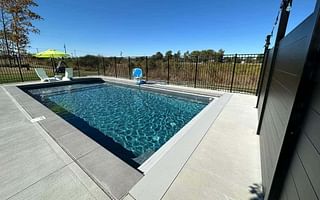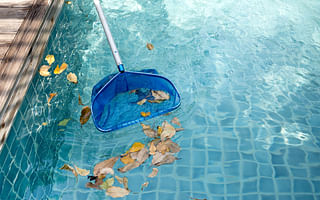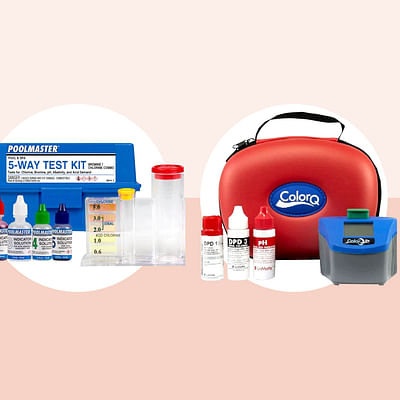🏊 Pool Water Testing Calculator
To ensure your pool water is safe and clean, it's important to maintain the correct chemical balance. Use the calculator below to determine what adjustments you need to make based on your pool's current pH, alkalinity, and chlorine levels.
After making the recommended adjustments, remember to retest your pool water to ensure it's within the ideal ranges: pH 7.2 to 7.6, alkalinity 80 to 120 ppm, and chlorine 1 to 3 ppm.
Keeping your pool in top-notch condition requires a balance of the right chemicals. Our Pool Water Testing Calculator is here to simplify that process for you. But, understanding the importance of these chemical levels and how to adjust them is equally crucial. Let's dive deeper into this topic.
Firstly, the pH level of your pool water is a critical factor in maintaining a healthy swimming environment. A pH level that's too high or too low can lead to skin irritation and even damage your pool equipment. Our beginner's guide to testing your pool water provides easy steps and tips to help you manage this aspect effectively.
Next, the alkalinity level of your pool water acts as a buffer to prevent drastic changes in pH. If your pool's alkalinity is not within the ideal range, it can cause your pH levels to fluctuate rapidly, leading to cloudy water and scale formation. For more information on this, you can refer to our FAQ on pool chemicals and their frequency of use.
Lastly, the chlorine level in your pool is essential for sanitization. Chlorine kills bacteria and other harmful organisms, ensuring your pool water is safe for swimming. However, too much chlorine can cause skin and eye irritation, while too little can lead to algae growth. Our FAQ on pool testing explains why it's necessary to keep these levels in check.
Now that you understand the importance of these chemical levels, it's time to put that knowledge into action. Use our Pool Water Testing Calculator to determine the necessary adjustments for your pool. Once you've made these adjustments, remember to retest your pool water to ensure it's within the ideal ranges. For a comprehensive understanding of maintaining your pool, check out our FAQ on swimming pool maintenance.
At Aquatic Inspections, we aim to make pool maintenance as straightforward as possible. With our guides, tips, and handy calculator, you'll have everything you need to keep your pool in pristine condition all year round. Happy swimming!




